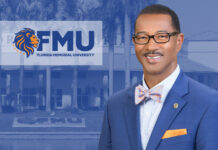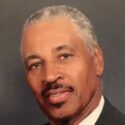 A new study by two scholars at Baylor University in Waco, Texas, finds that there is still widespread racial segregation in the congregations of America’s churches. And the study found that even in congregations that have made an effort to foster racial integration, neighbors who are people of other races have more impact on Whites’ friendship networks and attitudes than do members of their congregations.
A new study by two scholars at Baylor University in Waco, Texas, finds that there is still widespread racial segregation in the congregations of America’s churches. And the study found that even in congregations that have made an effort to foster racial integration, neighbors who are people of other races have more impact on Whites’ friendship networks and attitudes than do members of their congregations.
“Solving America’s racial problems may be hoping too much from religious congregations,” said Kevin D. Dougherty, Ph.D., associate professor of sociology at Baylor University and study co-author. “Where people live is more influential than where they worship in shaping racial attitudes.”
The research also shows that churches that have made an effort to diversify often find that over time, the level of diversity decreases. Edward Polson, an assistant professor of social work at Baylor and a co-author of the study, explains that “congregational growth typically occurs as a result of individuals inviting friends, neighbors and co-workers. White attenders are more likely to know and invite White individuals. As a result, the majority group in a congregation grows more quickly; there are simply more of them inviting others to come and participate. The minority group doesn’t grow at the same rate and over time tends to become a smaller and smaller percentage of the congregation. This may lead members to feel more marginalized.”
The article, “Worshiping Across the Color Line: The Influence of Congregational Composition on Whites’ Friendship Networks and Racial Attitudes,” was published in the journal Sociology of Race and Ethnicity. It may be accessed here.











GOD placed all of us on one planet. We are all the same.